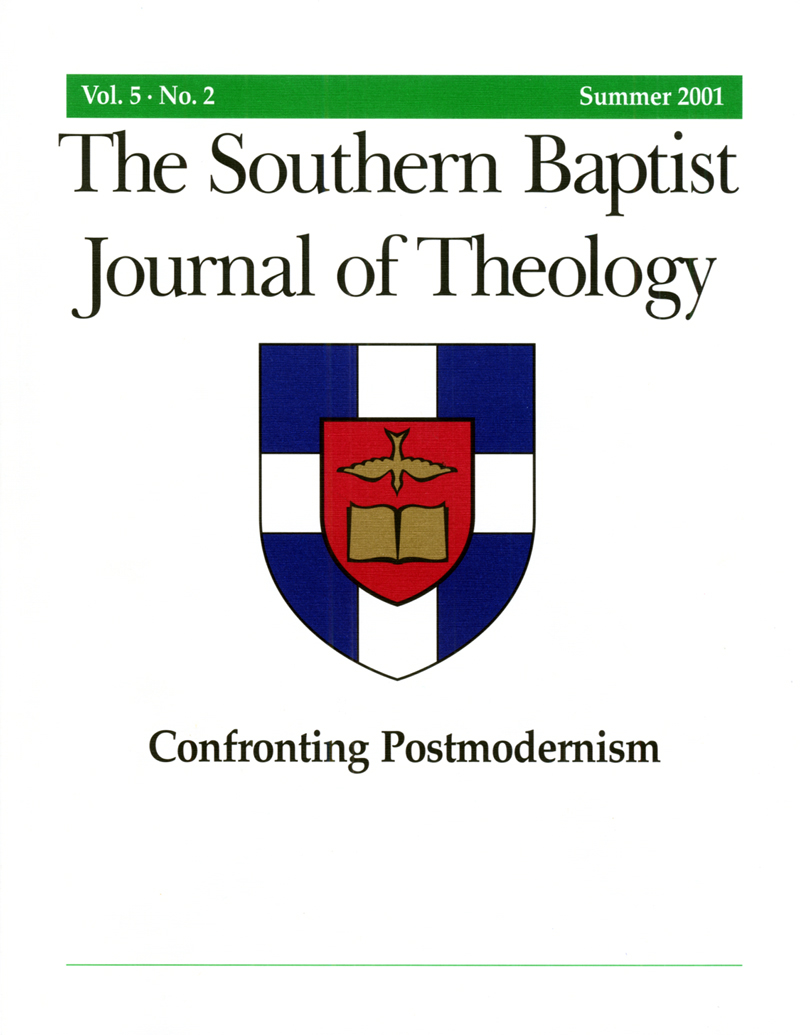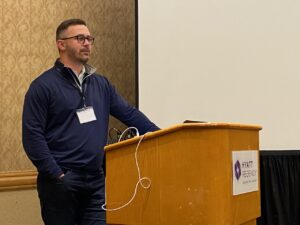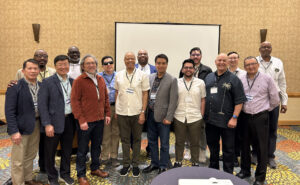
LOUISVILLE, Ky. (BP)–Should Christians be concerned about postmodernism? For that matter, what is postmodernism?
That question is tackled in the summer 2001 edition of The Southern Baptist Journal of Theology, which is published by Southern Baptist Theological Seminary. The newest edition — titled “Confronting Postmodernism” — contains selections by various faculty members, as well as essays by Millard Erickson of Truett Theological Seminary and David Allen of The Criswell College.
The journal’s writers argue that postmodernism — the belief that there is no absolute truth and that all individuals construct their own meaning — poses a great threat to the Christian church. Postmodernists generally believe that all religions are equal and that morality is relative.
In the lead editorial, Southern Seminary professor Thomas Schreiner argues that postmodernism must not be avoided.
“We must note immediately … the danger that lurks when we choose to neglect a deviant philosophy, especially when the philosophy is gaining ground in the culture,” writes Schreiner, professor of New Testament. “We may piously claim to be preaching the Gospel, while in fact we are in the process of being co-opted by the very philosophy that we have supposedly avoided. Our ignorance may become the platform by which we are subverted.”
Noting that everyone is influenced by the culture, Schreiner points out that many orthodox [or traditional] Christian beliefs were defined when the early church had to answer various heresies.
“A pastor who knows nothing about heresy probably has a very shallow understanding of orthodoxy,” Schreiner writes. “Those who are in the dark about postmodernism may find themselves clutched by its tentacles.”
Countering those who may say they are too busy to study postmodernism, Schreiner contends that it is not necessary to be an expert on the issue. He says that postmodern beliefs will be encountered in daily contact with non-Christians and Christians alike.
“We offer this very issue of the journal … to assist pastors in grasping the basic elements of the postmodern worldview,” he writes. “We must not say that pastors have to be experts in postmodernism to understand it. We can, nevertheless, have a reasonably good grasp of many arenas of life without being experts.”
Ted Cabal, professor of philosophy at Southern, points out that postmodernism and orthodox Christianity cannot co-exist. For starters, Cabal writes, postmoderns believe that the reader determines the meaning of a book. That cannot be the case with the Bible.
“The meaning of the text of Scripture cannot be regarded as indeterminate and endlessly open to word play,” he writes. “Preaching the exclusivity in Jesus, though offensive to postmoderns, is a non-negotiable for His followers.”
James Parker, Southern Seminary’s professor and associate dean of worldview and culture, argues that postmodernism will eventually die because it is an inconsistent philosophical system.
“When one has given up the idea of normative, universal and absolute truth, there is no reason whatsoever to take what they say as true [particularly since they have conceded up front that ‘truth’ does not even exist],” he writes about postmodernism’s defenders.
Millard Erickson, who teaches theology at George W. Truett Theological Seminary, asserts that a view of absolute truth is a foundation of evangelism.
“Evangelism, and orthodox Christianity in general, has always contended that its assertions about God are actually affirming truths about his nature and actions, and that its historical assertions refer to actual occurrences,” he writes.
The journal also contains essays by David Allen, preaching professor at The Criswell College; and Chad Brand, assistant professor of worldview and culture at Southern Seminary. The journal includes the text of a sermon titled, “What Did Jesus Believe About the Bible?” by Daniel Akin, dean of the School of Theology at Southern.
Books reviewed include “The Journey From Texts to Translations: The Origin and Development of the Bible,” by Paul D. Wegner; and “131 Christians Everyone Should Know,” by the editors of Christian History Magazine.
For information on obtaining the journal, call 1-800-626-5525 (ext. 4413).
–30–
(BP) photo posted in the BP Photo Library at http://www.bpnews.net. Photo title: SBJT.

















